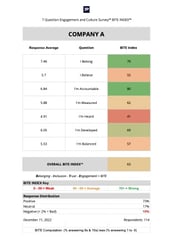Walt Brown had a discussion with Henry Lopez on the 285th episode of The How of Business. The title of the show is Developing Great Team Players, which is an essential component of the 7 Question - 7 Promise Framework.
The show begins with Walt discussing the benefits of his accounting background as a vehicle through which he could learn quite a bit, and he transitions to discussing the entrepreneurial history of his family in the Carolinas. Walt also mentions his affinity for sailboat racing and bicycles, which resulted in the opening of his Layline mail-order sailing catalog company years ago.
Walt talks about how he became a certified EOS Implementer after selling Layline in 2006. While helping companies to change their behaviors, he began to hear complaints about Millennials and the problems they were creating for their employers. Walt says this didn’t jibe with his observations of Millennials, because most of the Millennials he’d interacted with were ready to take over the world. Walt says he was able to engage with the Millennials by asking them seven questions to get to the root cause of the disconnect between the Millennials and the owners of the businesses that were having problems with them. In most cases, the business owners had failed to align employees with the core values of the business, or there was another problem that usually fell at the feet of the business owner.
Walt explains how the seven questions are required for a company’s workers to all get on the same page. If a 200-person business has 101 employees believing one thing and 99 believing another, the company is divided and getting ready to be conquered.
When it comes to training and development, Walt says this refers to a well-developed, on-the-job training program that is being done for the employees as opposed to something that is being done to them. For Walt, development ties into accountability and measurement, and this is something discussed more in his forthcoming book, Death of the Org Chart. Walt explains how an organization graph is a superior tool because it permits employees to see the tools required for each position, and it also allows them to establish a map for improvement and empowerment.
When it comes to maintaining balance, Walts says there are three kinds that are often discussed, including work-life balance, compensation, and health and wellness. However, for Walt, balance refers to balance within the organization. If a business expects 70-hour work weeks from its employees, it needs to be upfront about that expectation. To help with balance, employers should have a seasonal discussion with their employees every 90 days to know whether or not employees have the capability to maintain the quality of their job performances from moment to moment.
The discussion shifts to the survey from the 7Q7P website. Walt says the survey doesn’t need to be utilized as a temperature-taking device more than twice each year. He explains how, in most cases, accountability is the area in which organizations are lacking the most, and that includes the owners of the business. Walt also says it’s particularly important for small companies to get their employees aligned with the seven questions in order to retain them because they can’t afford to pay as much money as larger firms, so they are already at a disadvantage. It’s easy to keep the seven questions prominent in small tribes, but as companies grow in size, it’s harder for everyone to have access to the CEO, and that’s why it’s important to get operating systems in place to keep the culture going.
To listen to the full interview, please click here





